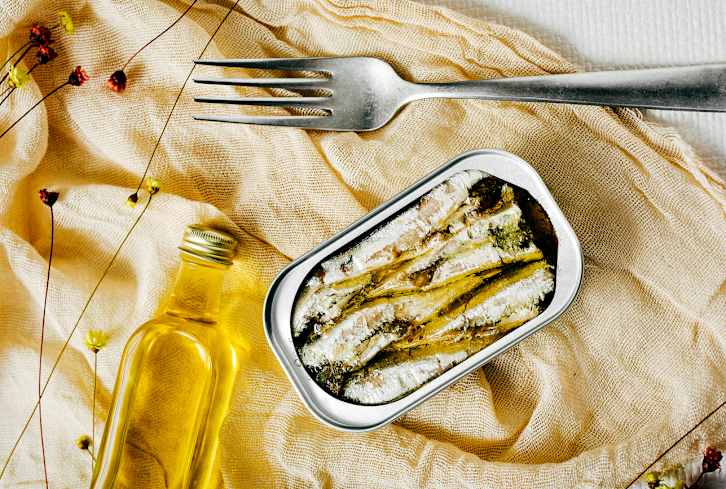Advertisement
These Are The Best Supplements To Naturally Boost Energy

Fatigue and lack of energy can sabotage your health and happiness in so many ways. You might feel that energy nose-dive midafternoon at work when you need to be most productive. Or you might lack the motivation to hit the gym, which then snowballs into more fatigue. Fatigue could mean wanting to pull the covers over your head even after a full night's sleep, or you might have a wired-but-tired feeling, where you want to sleep but can't.
Understanding energy levels and mitochondrial health.
To feel good and attack your day with vigor, you want steady, sustained energy. And that all starts with managing the little power plants within your cells, called your mitochondria. Energy production in the body is a complex process, but the main thing to know is that your mitochondria produce adenosine triphosphate (ATP). ATP is the main energy currency that keeps your body functioning.
But when your mitochondria crash, so does your ATP production1. Translation: Goodbye, energy and hello fatigue. "When mitochondria falter, cells lose power2, just as a flashlight dims when its batteries weaken," says Charles W. Schmidt, M.S. Mitochondrial dysfunction creates fatigue3, but it also contributes to almost every chronic disease4.
The bad news is that our mitochondria start operating less optimally as we age4. At the same time, many things we are exposed to daily—including environmental toxins, pesticide-loaded conventional foods, and drinking water that can sometimes carry unsafe levels of toxic chemicals—are also a hit to your mitochondria.
While chronic inflammation and oxidative stress can compromise mitochondrial function, there's plenty you can do from supplements to diet and lifestyle.
Supplements for energy: the basics.
A few well-chosen supplements can support your mitochondria, to help you maintain all-day energy. They include:
Multi-vitamin/mineral
A well-designed multi-vitamin/mineral should be your nutrient foundation to cover the gaps you might not—let's be honest, probably aren't—getting from food. Especially for at-risk groups for nutrient deficiencies (including physically active folks), supplementing with vitamins and minerals can support energy metabolism and well-being5.
Omega-3 fatty acids
Look for a supplement containing 1 to 2 grams of eicosapentaenoic acid (EPA) and docosahexaenoic acid (DHA) to support a healthy inflammatory response6 throughout the body, especially if you're not eating cold-water fish regularly.
Vitamin D
Unless you're lucky enough to live in Hawaii year-round, you're probably not making sufficient amounts of vitamin D, so supplementing becomes ideal. Low vitamin D levels contribute to fatigue, but getting sufficient amounts can correct this problem7.
12 supplements to optimize energy levels.
While you'll find many "energy-enhancing" supplements on the market, many lack the scientific support to recommend them. The following 12, however, do meet those criteria. They have been well-studied for their energy-supporting benefits, including peak mitochondrial performance.
A few caveats. We call these supplements for a reason: They should supplement a healthy diet and lifestyle. You'll likely get less-than-stellar results if you use these nutrients without the other factors I've described here.
Quality matters too. If you're buying poorly absorbable or otherwise-inferior supplements, then you're wasting money. Always buy professional-quality supplements and read labels carefully for artificial sweeteners and other problem ingredients!
As for dosage, I've provided ideal amounts of most supplements based on studies, although individual results vary. Some of these nutrients work synergistically, so you might find them combined in certain supplements. Overall, I highly recommend working with a qualified health care professional to optimize doses and determine the best supplements for your condition. When working with a practitioner, your presentation (or even better, specific testing) may cause him or her to suggest that you try any of the following:
1. CoQ10.
Coenzyme Q10 (CoQ10) enhances energy, supports your immune system, and makes a powerful antioxidant to help quash free radicals8. CoQ10 functions as a fundamental energy transfer molecule8 that's especially high in organs that demand energy including your heart, kidneys, and liver.
That's because CoQ10 serves as a cofactor to help synthesize ATP8. Researchers find CoQ10 deficiencies in chronic diseases including heart disease9, and (as with most nutrients here) levels naturally decline with age9. Conversely, supplementing can positively support mitochondrial function9.
As a powerful antioxidant, CoQ10 can also combat inflammation. To support energy levels, you can use anywhere from 30 to 200 mg of CoQ10 daily8. Always take CoQ10 supplements with a meal containing fat.
2. Nicotinamide riboside (NR)
The Krebs cycle and the electron transport chain both help create ATP. The cofactor nicotinamide adenine dinucleotide10—which exists in both an oxidized (NAD+) and reduced (NADH) form—plays a part in both processes. As a supplement, nicotinamide riboside (NR) is a direct precursor for NAD+.
Supplementing with NR can optimize NAD+ to support your mitochondria and ATP levels. One recent randomized, double-blind, placebo-controlled, crossover clinical trial found regularly supplementing with 500 mg of NR twice daily effectively stimulates NAD+ metabolism in healthy middle-aged and older adults11.
3. Magnesium
More than 300 enzymatic reactions12 require this undervalued mineral for numerous metabolic pathways, including energy production12. There could very well be a connection between lagging energy levels and nearly two-thirds of the Western world who are deficient in magnesium12.
Magnesium also helps manage stress levels and optimizes sleep12, further supporting healthy energy levels. You'll find several types of magnesium supplements. I recommend magnesium citrate or magnesium glycinate. Start with 200 mg and gradually increase. Take it before bedtime for a calming effect.
4. B complex
The B vitamins—including thiamine (B1), riboflavin (B2), niacin (B3), pantothenic acid, pyridoxine (B6), B12, biotin, and folate—all play roles in energy production: They help convert the energy you derive from food (calories) into ATP.
One study found deficiencies in B6 can increase oxidative stress13 while supplementing can support levels of your master antioxidant glutathione. B vitamins work as a team, and all eight are essential for promoting physical performance and brain function14.
Even if you're eating an optimal diet, supplementing with a B complex could support energy levels. Because B vitamins are water-soluble, your body will use what it needs and excrete the rest.
5. L-carnitine
This molecule has been extensively studied for energy production15: L-carnitine helps shuttle fatty acids into your mitochondria15, which oxidizes that fat for energy.
L-carnitine can also help remove the toxic compounds15 that occur when your mitochondria generate ATP. Short-term animal studies show even with caloric restriction (that can crash your energy levels), L-carnitine supplementation can enhance performance capabilities16. (Bonus: L-carnitine can also help you lose weight17.)
Your body synthesizes L-carnitine from the amino acids lysine and methionine, and some foods (especially red meat) contain carnitine. Certain conditions can inhibit synthesis, making L-carnitine a conditionally essential nutrient.15 To optimize energy levels, I recommend starting with 1 to 2 grams (in divided doses) in the morning and gradually increase until you notice a difference.
6. Curcumin
Turmeric's active compound carries a double claim to fame: Curcumin is a has antioxidant and anti-inflammatory properties18, making this an ideal supplement for a variety of conditions18, but also to optimize energy levels. In one randomized, double-blind, placebo-controlled trial of 60 healthy older people, researchers found curcumin supplements enhanced working memory, mood, and general contentedness, all while managing overall physical fatigue19.
Sprinkle organic turmeric onto your food, but to get therapeutic doses of curcumin you'll need to supplement. Unfortunately, most curcumin supplements are poorly absorbed. Look for a curcumin supplement that also contains black pepper, which research shows can increase bioavailability by 2,000 percent18. To further enhance absorbability, take curcumin supplements with a fat-soluble meal.
7. D-ribose
Your mitochondria contain this naturally occurring monosaccharide (a five-carbon sugar) that's essential for energy production1: D-ribose is an energy-producing substrate of ATP that researchers call the "molecular currency1" because of its energy transfer role. For people with mitochondrial dysfunction, supplemental D-ribose can improve energy production1.
Among its therapeutic roles, supplementing can help manage various conditions1 including chronic fatigue syndrome. D-ribose also supports athletic performance by managing exercise-related symptoms1 like cramping, pain, and stiffness. Try 5 grams (1 teaspoon) of D-ribose powder around your workout. Gradually increase until you feel more energy.
8. N-acetyl-cysteine (NAC)
This specialized form of the amino acid L-cysteine provides mitochondrial-supporting anti-inflammatory and antioxidant benefits20 while promoting detoxification20 and making a fantastic precursor for the master antioxidant glutathione.
All of these benefits make NAC a great supplement to support your mitochondria and optimize energy levels. "The key role of NAC is to increase intracellular glutathione, which is then pumped into the mitochondria," says Pizzorno. "This glutathione is critical for protection of mitochondria from oxidative damage21." NAC comes in capsules or powder. I recommend 500 to 600 mg twice daily.
9. Lipoic acid
Alternately called alpha-lipoic acid, this nutrient has been well-studied as a cofactor in mitochondrial energy metabolism22. Talk about a workhorse supplement: Lipoic acid has antioxidant properties that also helps manage metal chelation, inflammation, detoxification, and glucose metabolism22, all of which affect energy levels.
Lipoic acid can also help recycle other antioxidants including glutathione. Researchers have studied its benefits on a wide variety of conditions22. Your body makes some lipoic acid, and very few foods contain it. Supplementing becomes ideal to get therapeutic amounts of this "antioxidant par excellence22." I recommend 100 mg two or three times daily.
10. Branched-chain amino acids (BCAAs)
These three amino acids—leucine, isoleucine, and valine—can enhance muscle mass23, which makes sense considering they make up about 35 percent of the essential amino acids24 in muscle protein. BCAAs also help manage exercise-related muscle damage25 and post-exercise fatigue26.
Other research shows that BCAAs can promote resistance to fatigue27 and (for glycogen-depleted people, such as those on a ketogenic diet) utilize fat for fuel. You'll need to use a powder that contains about 5 grams of BCAAs to get therapeutic amounts. Most of them taste terrible or contain nasty ingredients like artificial sweeteners. Read your labels carefully!
11. Resveratrol
Perhaps best known as the polyphenol abundant in red wine, resveratrol makes a very potent antioxidant that fights inflammation28 and activates the SirT1 gene (that provides resveratrol's healthy-aging benefits29). Researchers also find that resveratrol benefits mitochondrial energy production29.
"Resveratrol promotes mitochondrial ATP production, protects from ROS, up-regulates sirtuin 1, and so forth," says Pizzorno. "Human studies are now confirming animal studies showing enhanced mitochondrial [function]21 at surprisingly reasonable dosages."
12. Creatine
Short-term, high-intensity exercise can impair your body's ability to maintain ATP30. Supplementing with L-creatine can potentially support normal levels of phosphocreatine, which your body uses to make new ATP during exercise30.
While most studies focus on creatine monohydrate, other forms of creatine are available in powder or capsule forms. Research shows you need 20 to 30 grams of creatine30 to get those benefits, but I strongly suggest starting with 5 grams.
Better yet, be wary about this popular ergonomic supplement. While some organizations like the International Society of Sports Nutrition argue creatine "as a nutritional supplement within established guidelines is safe, effective, and ethical31," other researchers feel concerned about long-term use of this supplement32.
Steady energy from your diet.
To support your mitochondria, look to your fork. Choosing nutrient-rich foods that optimize your mitochondria keeps your blood sugar levels steady. You don't have those miserable spikes and crashes that make you want to take a mid-afternoon nap at your desk.
Among those mitochondria-supporting foods should be:
1. Healthy Fat
Healthy fats like extra-virgin olive oil can help your mitochondria function optimally33. So can anti-inflammatory wild-caught fish. On the other hand, the trans fats in processed foods and some vegetable oils can crash your mitochondria34 while ramping up inflammation and oxidative stress.
2. Protein
Protein steadies your blood sugar and supports cellular health. If you eat animal protein, always select from organic and naturally raised sources. One animal study found that whey protein stimulates mitochondrial activity and protects against oxidative stress35.
3. Carbohydrates
The best way to increase antioxidant intake to balance those nasty free radicals is through a diet full of rich, colorful vegetables and fruits.
Just as importantly: Avoid the foods that impair your mitochondria and sabotage your energy. These include grains, processed foods, and foods that we commonly develop sensitivities to like soy and corn. I recommend keeping a food journal to track your energy levels. That way, you can pinpoint specific foods that boost or zap your energy.
These lifestyle factors support healthier mitochondria.
Even the healthiest diet can only do so much to provide steady, sustained energy and optimize mitochondria if you're not incorporating these lifestyle factors:
1. Get great sleep.
Getting great sleep becomes crucial to optimize your mitochondria. Getting insufficient or poor-quality sleep, on the other hand, can really mess with your mitochondria36 and crash your energy. Aim for eight hours of quality, uninterrupted sleep nightly.
2. Manage your stress levels.
Chronic stress is a surefire way to drain the quantity and quality of your mitochondria37. One review of 19 studies found "significant adverse effects of psychological stress on mitochondria37." So whether that means you invest some time in yoga, meditation, deep breathing, or other de-stressing techniques, your mitochondria will thank you!
3. Minimize environmental toxins.
Everything from the air you breathe to the food you eat to the household cleaners you use can interfere with the function and overall quality2 of your energy-producing mitochondria. That includes pharmaceutical drugs such as antibiotics, which can stall ATP production, increase oxidative stress, and impair mitochondria21.
4. Exercise correctly (and consistently).
Consistent exercise can support mitochondrial function38 and symptoms of metabolic syndrome like insulin resistance. Studies show high-intensity interval training (HIIT) can enhance mitochondrial function39.
5. Minimize or eliminate energy thieves
I'm talking about the toxic people and situations in your life that can drain your battery faster than an iPhone with 20 apps running but also many substances we use daily. "Alcohol and mitochondria: a dysfunctional relationship40" was the title of one study. (Do I need to say more?). While caffeine seems to support your mitochondria41, this effect is dose-dependent. Overcaffeinating to compensate for low energy is a surefire formula to crash and burn.
Low energy levels can sabotage nearly every area of your life, including work productivity, sleep, and ability to manage stress levels. A healthy diet combined with good sleep, managing stress, and other lifestyle factors I've discussed here can provide a solid foundation to optimize your mitochondria, minimize fatigue, and create vibrant energy that keeps you healthy, happy, and productive.
While I've addressed many energy thieves, fatigue can sometimes be a multifaceted problem that requires an individualized approach addressed by a healthcare practitioner. At its worst, low energy levels and constantly feeling lethargic can indicate illness or disease. If you're doing everything correctly yet struggle with steady, sustained energy levels, confer with a professional.
41 Sources
- https://www.ncbi.nlm.nih.gov/pmc/articles/PMC5959283/
- https://www.ncbi.nlm.nih.gov/pmc/articles/PMC2920932/
- https://www.ncbi.nlm.nih.gov/pmc/articles/PMC4136529/
- https://www.ncbi.nlm.nih.gov/pmc/articles/PMC4566449/
- https://www.ncbi.nlm.nih.gov/pubmed/17593855
- https://www.ncbi.nlm.nih.gov/pubmed/28900017
- https://www.ncbi.nlm.nih.gov/pmc/articles/PMC4158648/
- https://www.ncbi.nlm.nih.gov/pmc/articles/PMC3178961/
- https://www.ncbi.nlm.nih.gov/pmc/articles/PMC5807419/
- https://www.sciencedirect.com/topics/neuroscience/nicotinamide-adenine-dinucleotide
- https://www.ncbi.nlm.nih.gov/pmc/articles/PMC5876407/
- https://www.ncbi.nlm.nih.gov/pmc/articles/PMC5637834/
- https://www.ncbi.nlm.nih.gov/pubmed/25933612
- https://www.ncbi.nlm.nih.gov/pmc/articles/PMC4772032/
- https://ods.od.nih.gov/factsheets/Carnitine-HealthProfessional/
- https://www.ncbi.nlm.nih.gov/pmc/articles/PMC4393395/
- https://www.ncbi.nlm.nih.gov/pubmed/27335245
- https://www.ncbi.nlm.nih.gov/pmc/articles/PMC5664031/
- https://www.ncbi.nlm.nih.gov/pmc/articles/PMC5964053/
- https://www.ncbi.nlm.nih.gov/pmc/articles/PMC5241507/
- https://www.ncbi.nlm.nih.gov/pmc/articles/PMC4684129/
- https://www.ncbi.nlm.nih.gov/pmc/articles/PMC3022059/
- https://www.ncbi.nlm.nih.gov/pmc/articles/PMC5691664/
- https://academic.oup.com/jn/article/134/6/1583S/4688850
- https://www.ncbi.nlm.nih.gov/pmc/articles/PMC4241904/
- https://www.ncbi.nlm.nih.gov/pubmed/16424144
- https://www.ncbi.nlm.nih.gov/pubmed/21297567
- https://www.ncbi.nlm.nih.gov/pubmed/22587021
- https://www.ncbi.nlm.nih.gov/pmc/articles/PMC2546476/
- https://www.ncbi.nlm.nih.gov/pubmed/10919967
- https://www.ncbi.nlm.nih.gov/pmc/articles/PMC2048496/
- https://www.ncbi.nlm.nih.gov/pubmed/19124889
- https://www.ncbi.nlm.nih.gov/pubmed/17243080
- https://www.ncbi.nlm.nih.gov/pubmed/28567576
- https://www.ncbi.nlm.nih.gov/pmc/articles/PMC3749878/
- https://www.ncbi.nlm.nih.gov/pubmed/25325607
- https://www.ncbi.nlm.nih.gov/pubmed/29389736
- https://www.sciencedirect.com/science/article/pii/S0304416509003171
- https://www.ncbi.nlm.nih.gov/pmc/articles/PMC5482849/
- https://www.ncbi.nlm.nih.gov/pubmed/12055609
- https://www.ncbi.nlm.nih.gov/pubmed/23882149


















